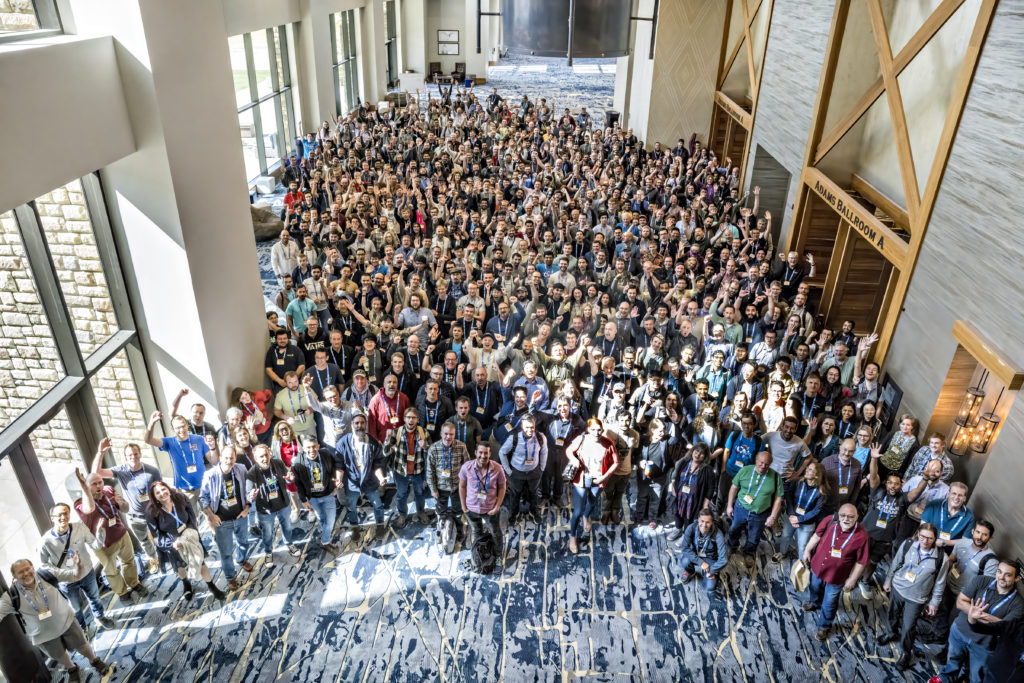CppCon 2024 To Int or to Uint, This is the Question -- Alex Dathskosky
![]() Registration is now open for CppCon 2024! The conference starts on September 15 and will be held in person in Aurora, CO. To whet your appetite for this year’s conference, we’re posting some upcoming talks that you will be able to attend this year. Here’s another CppCon future talk we hope you will enjoy – and register today for CppCon 2024!
Registration is now open for CppCon 2024! The conference starts on September 15 and will be held in person in Aurora, CO. To whet your appetite for this year’s conference, we’re posting some upcoming talks that you will be able to attend this year. Here’s another CppCon future talk we hope you will enjoy – and register today for CppCon 2024!
To Int or to Uint, This is the Question
Thursday, September 19 15:15 - 16:15 MDT
by Walter E. Brown
Summary of the talk:
In our daily work, we often use integral data types to perform arithmetic calculations, but we may not always consider how the selection of the data type can affect performance and compiler optimizations. This talk will delve into the importance of choosing the correct data type for the job and how it impacts compiler optimizations. We will also examine the overall performance implications for the application. We will explore specific algorithms where using unsigned data types is more beneficial and other situations where signed data types are the best choice. Furthermore this talk will dive into the differences between signed and unsigned integers, how the processor handles certain operations and explain many of the surprising pitfalls of using integral types.
Attendees will come away with a deeper understanding of how data type selection can impact their code and how to make better choices for optimal performance.This session will follow the guidelines from my short article on LinkedIn but it will go into higher details and contain more examples and explanations.
Alex has over 17 years of software development experience, working on systems, low-level generic tools and high-level applications. Alex has worked as an integration/software developer at Elbit, senior software developer at Rafael, technical leader at Axxana, Software manager at Abbott Israel and now a group manager a technical manager at Speedata.io an Exciting startup the will change Big Data and analytics as we know it .On His current Job Alex is developing a new CPU/APU system working with C++20, Massive metaprogramming and development of LLVM to create the next Big thing for Big Data. _x000D_
_x000D_
Alex is a C++ expert with a strong experience in template meta-programming. Alex also teaches a course about the new features of modern C++, trying to motivate companies to move to the latest standards.

 The C++ language has two large categories of “don’t do that” known as undefined behavior and ill-formed program. What’s the difference?
The C++ language has two large categories of “don’t do that” known as undefined behavior and ill-formed program. What’s the difference? In a recent talk at C++OnSea, Arne Mertz highlighted common misuses of guidelines, including the Rule of Five. This discussion prompted me to reflect on a recurring pattern I've observed in C++ classes that explicitly default constructors and destructors, leading to unexpected behaviors with move semantics.
In a recent talk at C++OnSea, Arne Mertz highlighted common misuses of guidelines, including the Rule of Five. This discussion prompted me to reflect on a recurring pattern I've observed in C++ classes that explicitly default constructors and destructors, leading to unexpected behaviors with move semantics. The opening keynote of
The opening keynote of